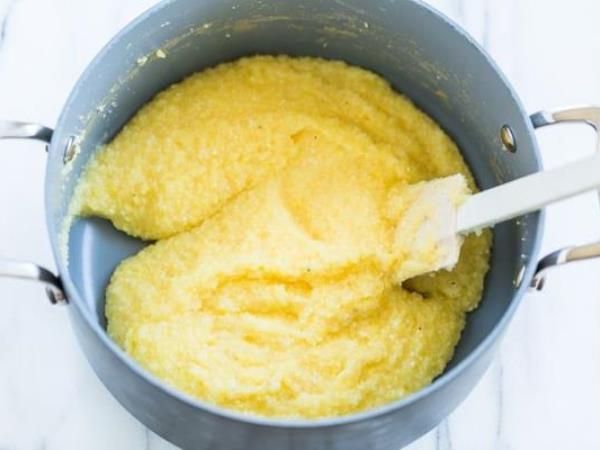Polenta is most commonly used in Italian cuisine. It contains a lot of proteins and fibers, and the most important are the vitamins and minerals. That's why polenta is often on the menus of top athletes.
Energy from carotenoids
Most of the energy from corn comes from starch, which does not raise bad cholesterol in the blood and is therefore beneficial for heart health (much more than potatoes, rice, or bread). Polenta contains a lot of carotenoids, which are beneficial for eye and skin health.
Fiber
The fiber in polenta is among the healthiest plant fibers and has a positive impact on health and the immune system. Fiber helps the body function and cleanse the intestines, reducing the risk of diseases such as colon cancer, heart disease, and others. Only if your digestion is in order will your heart and digestive system function smoothly.
Gluten-free
Many sources of plant fibers, such as wheat, couscous, and rice, contain gluten. Even if you are not (yet) sensitive to gluten, it is definitely better to avoid it.
Vitamin A
Although polenta is not exceptionally rich in vitamins and minerals, it still contains enough vitamin A, which is very important for kidney, lung, and heart function.
Contains essential minerals
Polenta is rich in iron, magnesium, and zinc, which are the most important essential minerals, making polenta a healthy food with low fat content.
Fast food
Polenta is easy to prepare, which is its greatest value. Remember to use cornmeal in a ratio of 1:3 with water. Your meal will be ready in two minutes.
Datum: 17. FEB 25 - GOOD TO KNOW
Polenta in the diet of athletes?
Polenta is a popular dish with incredible health benefits. It can be a standalone meal or a healthy and interesting addition.
(FW)
 Would you like to be informed about news on the website?
Would you like to be informed about news on the website?
Just enter your e-mail
Polenta diet athletes
Health benefits of polenta
Italian cuisine polenta
Gluten-free polenta
Essential minerals in polenta
|
Copyright (c) Foodwhisper.com March 2018 |
π | Contact: info@foodwhisper.com |
About us | Facebook |  |









